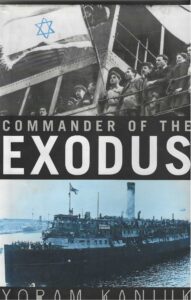
Most famous of Aliyah Bet ships is of course Exodus 1947. Commander of the Exodus is really a bio of Yossi Harel, but highlights his leadership role in that fabled ship’s history-affecting voyage. It’s a thrilling read.
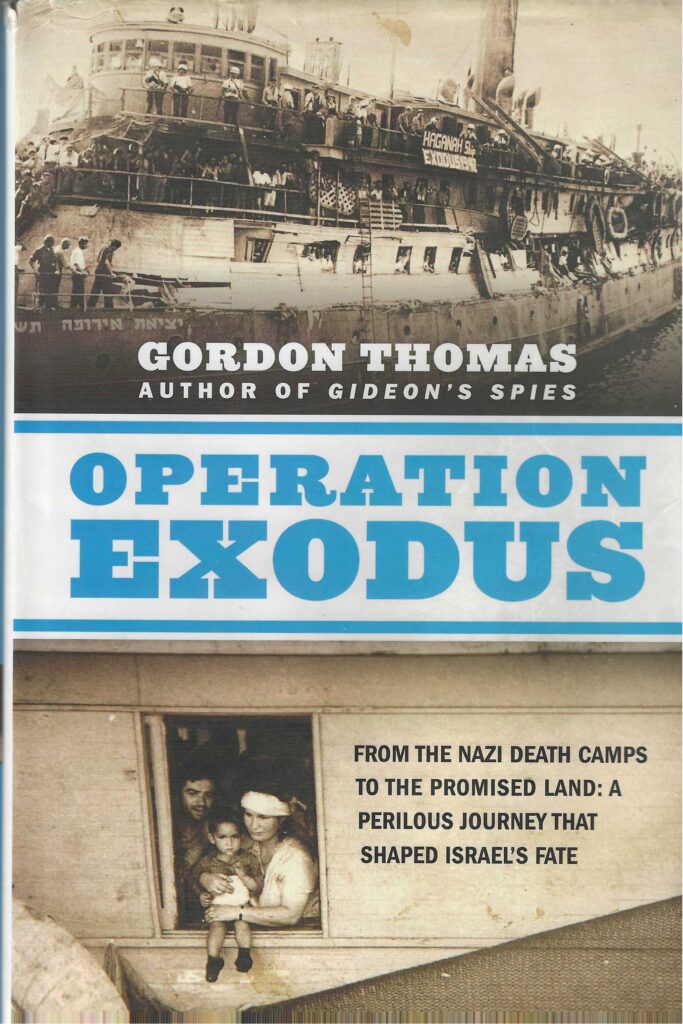
This is a most moving book, telling the courageous tales of partisans and Holocaust survivors who made their way to the ship, and of the Palestinian Jews who aided them, and of the ship’s voyage and clash with the British who boarded on the high seas.
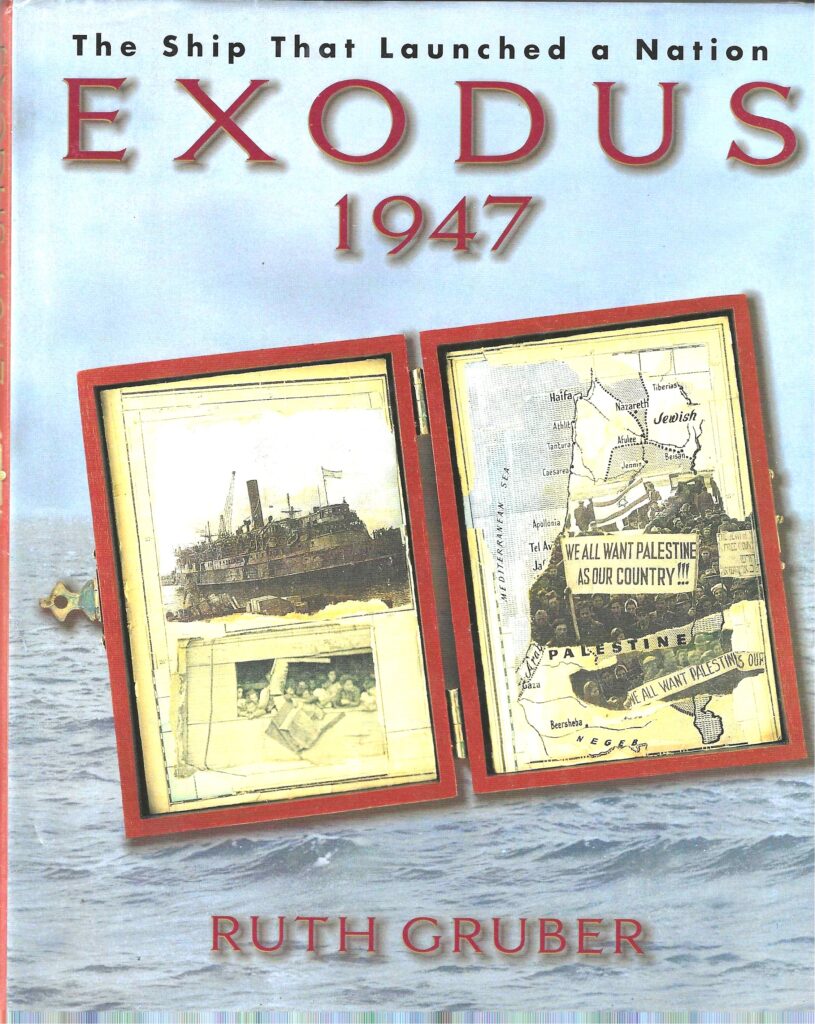
In 1948, American journalist Ruth Gruber arrived on Haifa’s dock to witness the arrival of British-battered Exodus. In her moving book Destination Palestine, she captured that brutal event and then the prison ship’s weeks-long stay in a French harbor before the British infamously returned the refugees to Germany. Half-a-century later Gruber expanded a new edition, Exodus 1947: The Ship that Launched a Nation, with more photos and a gripping chapter on the pre-voyage DP camps she’d visited.
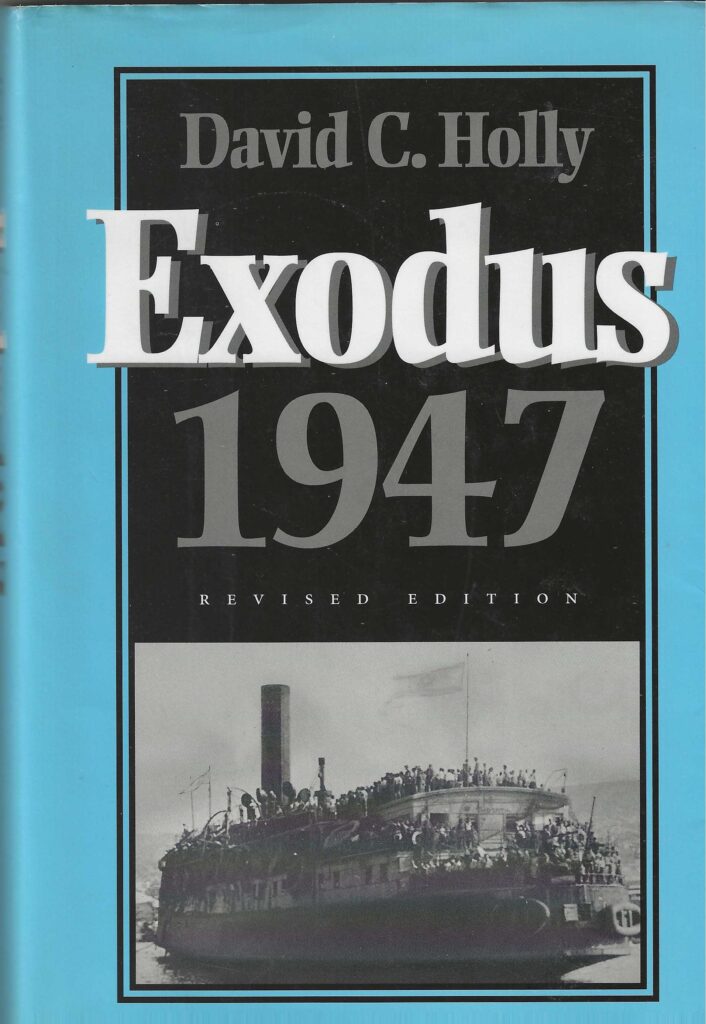
Exodus 1947 is a beautifully written book recounting this legendary ship’s three carriers: as Chesapeake Bay steamer President Warfield, as a British and American warship in the D-Day invasion, and finally as the immortal Haganah Ship Exodus 1947. Holly captures the spirit and mood of all three periods.
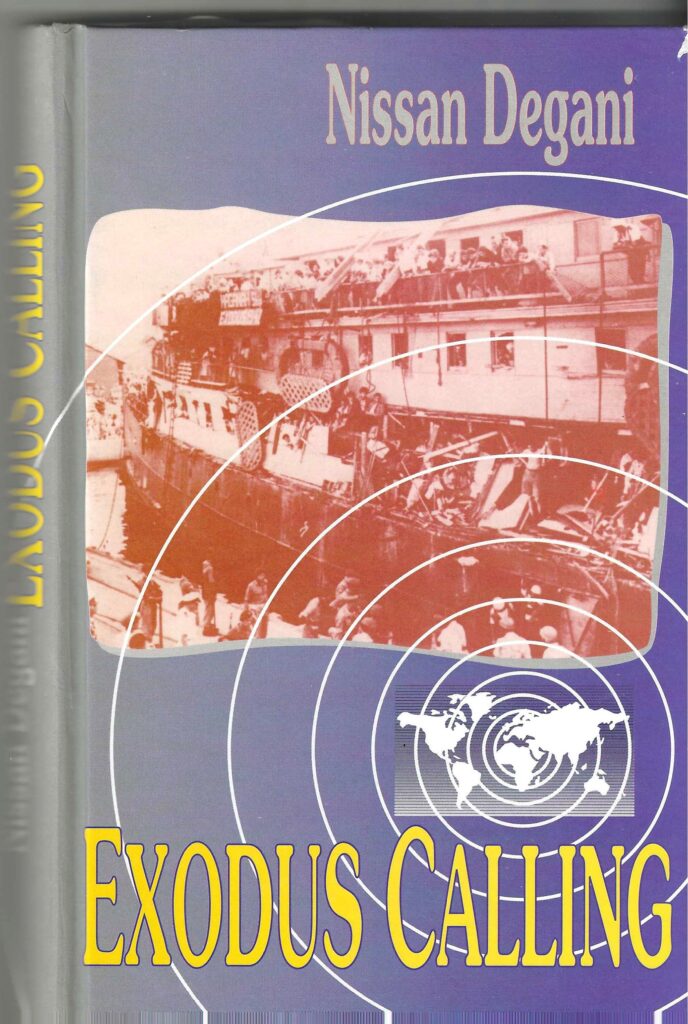
Exodus Calling is a most moving book, largely in the language of crew and passengers in that immortal voyage. Its tale begins with their reaching the ship and continues through the voyage and battle, deportation from Palestine by the British, their return to France, then Germany, and finally home.
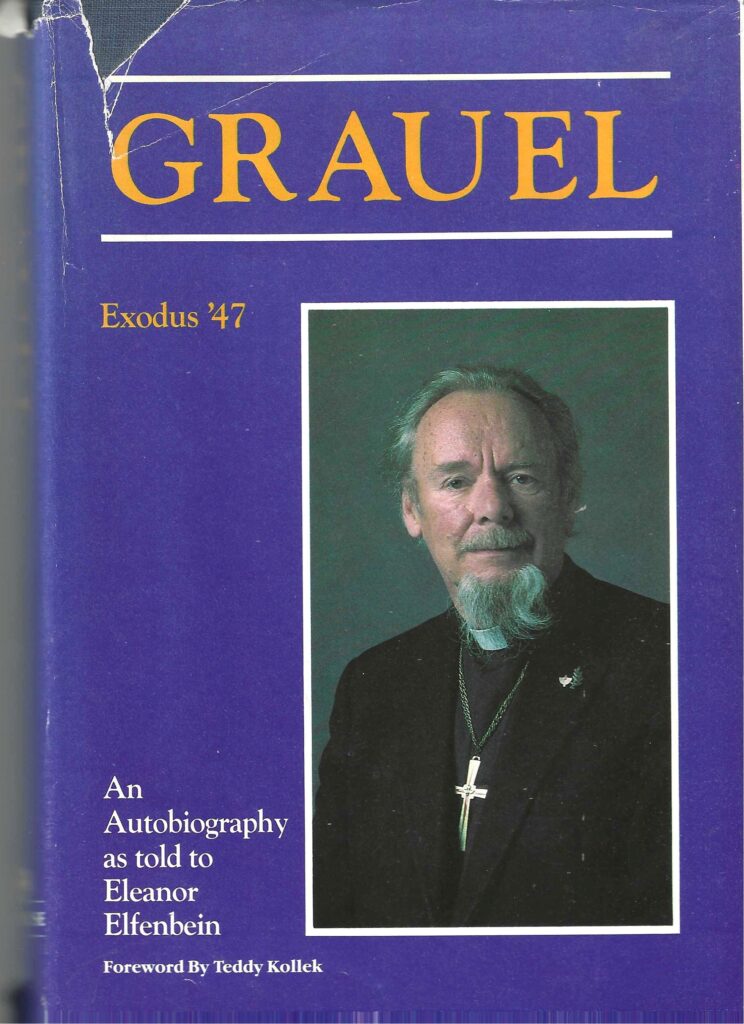
Rev. John Stanley Grauel volunteered as a crewman on the Exodus back in America, and hence served as an active participant in its events through the battle with the British on the high seas off the Palestine coast. His moving graphic radio accounts of the battle as it was unfolding electrified the Yishuv.
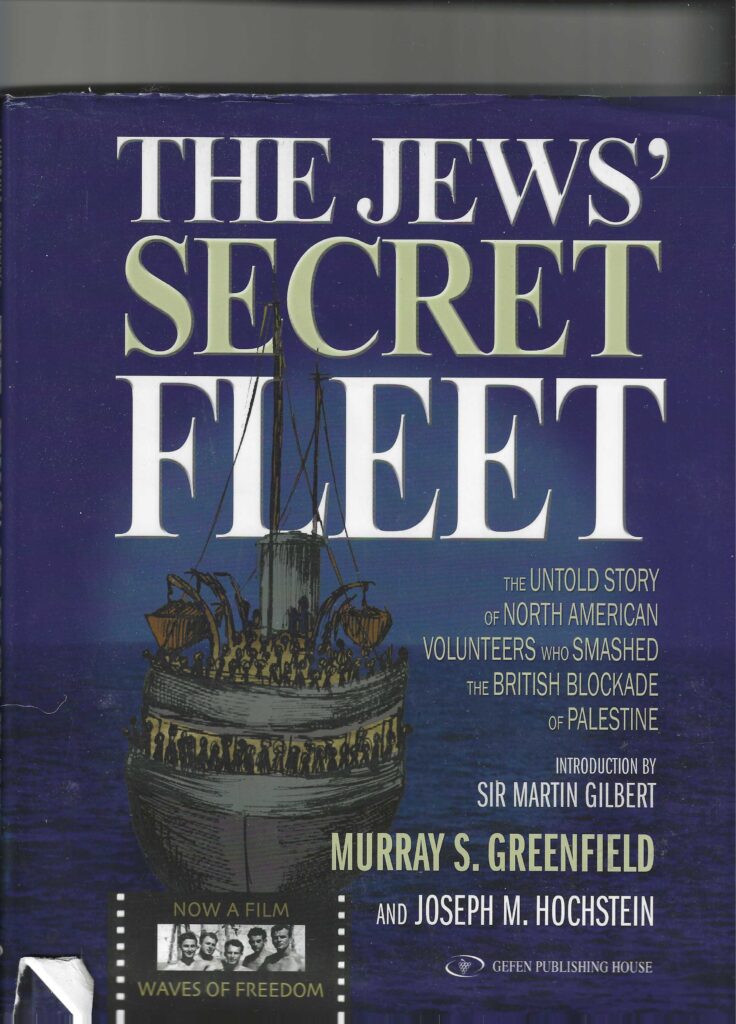
Greenfield & Hochstein set out to tell in this book “the untold story of North American volunteers who smashed the British blockage of Palestine,” and Yes, they did. American Jews today should take pride in these mostly WW II Jewish vets volunteer manning of the ten US-originated Aliyah Bet ships, who sailed the largest groups of refugees into the teeth of the British blockade.
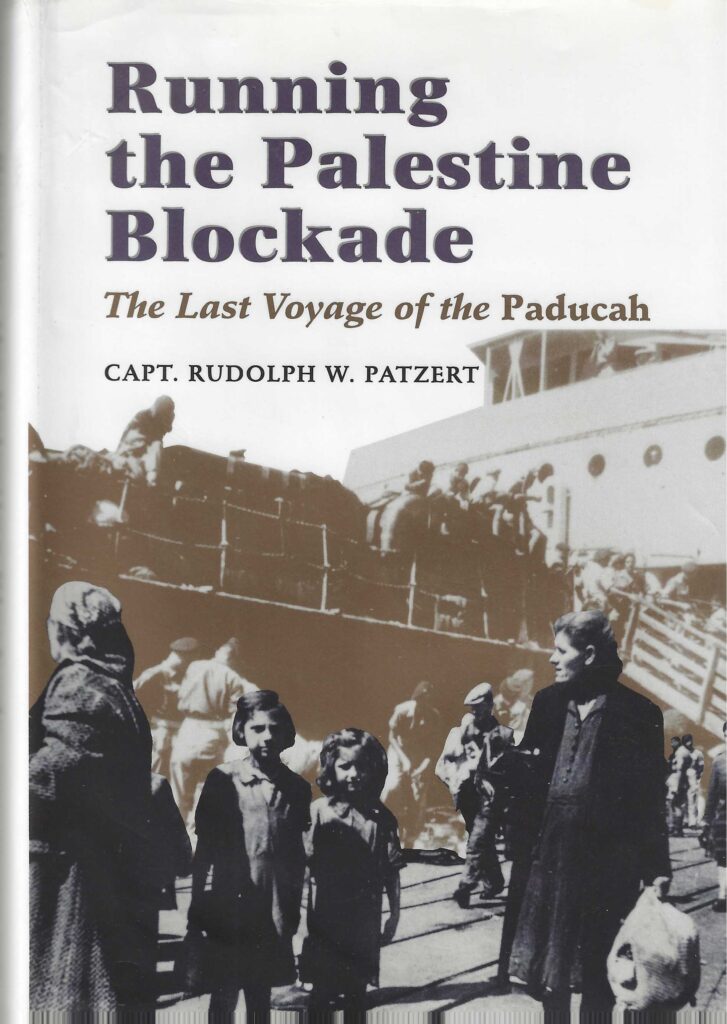
This is the great story of a Christian sea captain originally hired to sail one of the US Aliyah Bet ships to Europe. But he comes to identify with the people and cause, and stays on all the way to Palestine’s shores, where the ship is captured by the British and the mostly Jewish crew and refugees taken to prison camps, where thousands are detained in primitive conditions, on Cyprus.
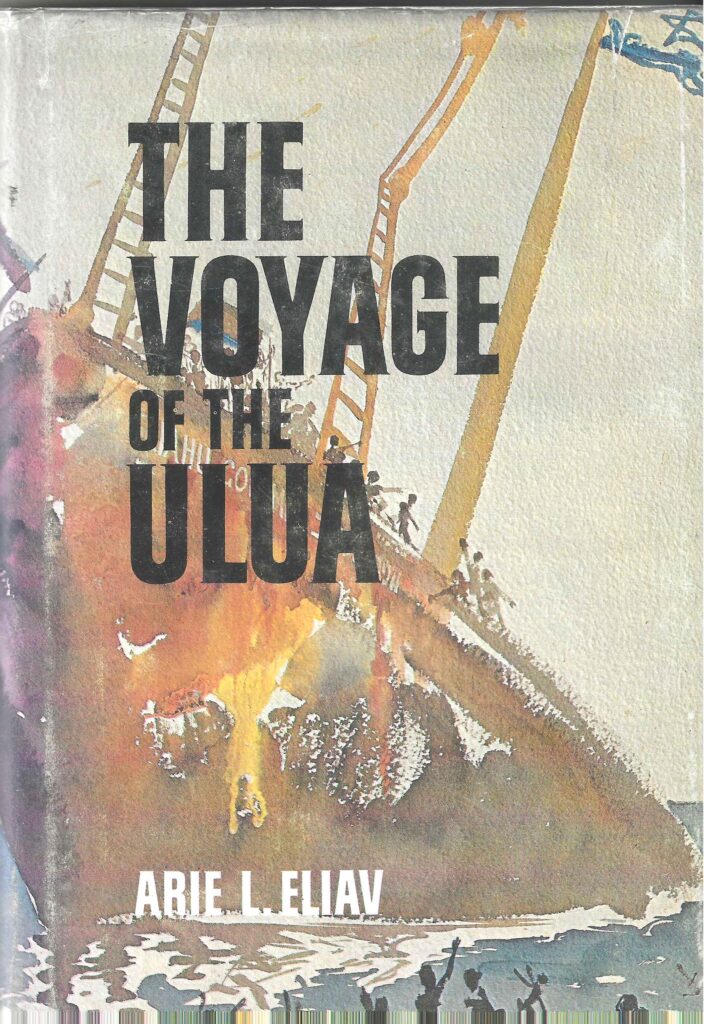
Of my thousand+ non-fiction books on Israel, Lova Eliav’s Voyage of the Ulua, movingly telling the tale of one of those US-originated Aliyah Bet ships from the point of view of its Palestinian [Jews were called Palestinian during the Mandate] captain, is one of my favorites. One scene is immortal. The British are on to the ship’s role early on, and when it puts into a Danish port on way to pick up Jewish refugees in Sweden put pressure on the Danes to impound it. The inspector, who’d helped in the WW II rescue sailing of Jews from Denmark to Sweden, comes aboard and queries Eliav what are all these shelves in the hold, are they bunks for hundreds of people? No, says Eliav, the ship’s going to Arctic to study small fishes in the ocean food chain, and the shelves are for aquariums. Ok, says the inspector, scientific expedition, free to go. Then, under his breath, “And how much are the Jews of New York paying for this fishing expedition?” Love it.

